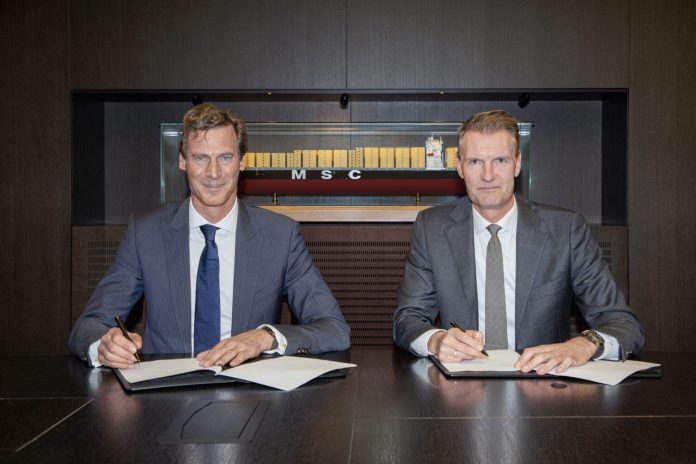World’s largest container line MSC and global freight forwarder DB Schenker have made an agreement according to which, DB Schenker will use 12,000 metric tons of biofuel component for all of its own consolidated cargo, less-than-container load (LCL), full-container-load (FCL) and refrigerated containers (reefer containers), from MSC.
According to a joint statement, the amount of biofuel purchased is enough to save an additional 35,000 metric tons of CO2 equivalents (CO2e) along the entire production chain (well-to-wake) in the market.
The two companies said the equivalent of around 30,000 standard containers may be shipped with net-zero CO2 emissions, depending on how the fuel is used during navigation.
The purchase agreement was signed in February and represents one of the largest carbon insetting biofuel deals between a freight forwarder and a shipping company. The deal sets out the use of certified sustainable, second-generation biofuels – derived from used cooking oil – instead of conventional fossil-based marine fuel, according to the statement.
The two partners noted that the 12,000 metric tons of biofuel component will be blended between 20 and 30%, resulting in approximately 50,000 metric tons of blended biofuel to be used in MSC’s container ships.
Caroline Becquart, MSC’s senior vice president, commented, “MSC Biofuel Solution is our first certified carbon insetting programme that reduces emissions in our customers’ supply chains, accelerating the energy transition by creating demand for net-zero-carbon shipping and delivering direct CO2 savings.”







